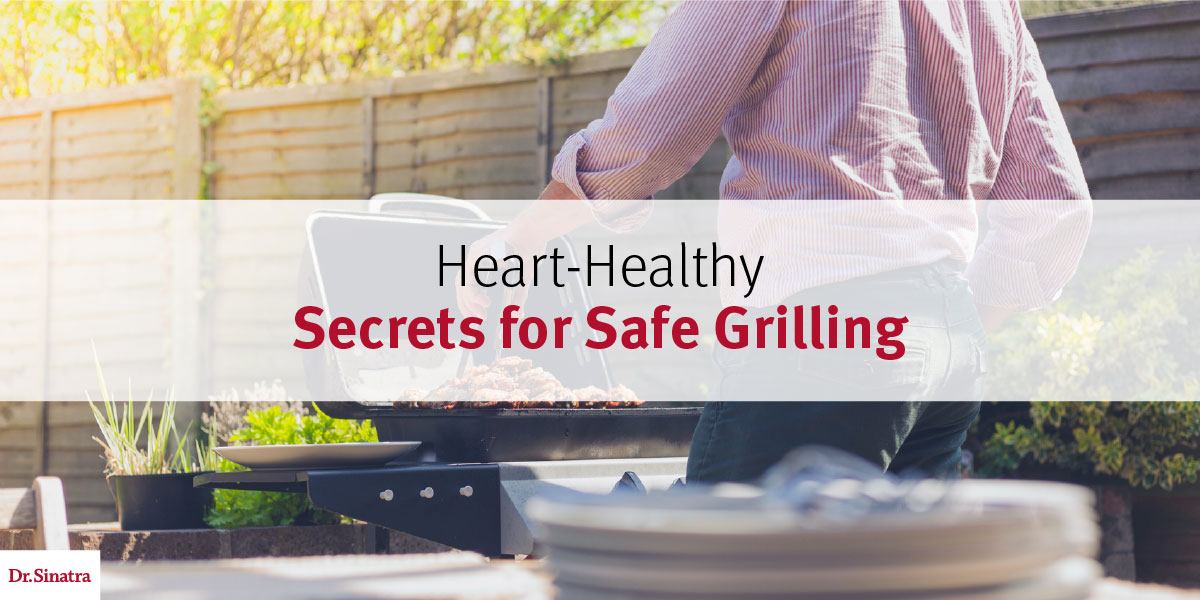
No doubt grilling can be fun. But grilling can also be hazardous to your health.
The first step to better grilling is to not use charcoal, which can release carcinogenic agents called PAHs (polycyclic aromatic hydrocarbons) and HCAs (heterocyclic amines) into your food.
A far better option is to use a propane-fueled gas grill. Unlike charcoal that “burns dirty,” releasing sooty particles that produce natural hydrocarbons, gas grills burn clean. But even with gas, you can end up with advanced glycation end products (AGEs) in your food. AGEs act like harmful free radicals in your body, creating oxidative stress and resulting in premature aging.
Here Are My Top Tips for Heart-Healthy Grilling
- Clean Your Grill: Before cooking, make sure you remove all food particles on your grill so you avoid eating any burned skin or fat.
- Choose Your Marinades Wisely: Marinades that contain vinegar or lemon juice help to speed up cooking and reduce the amount of time your meat spends on the grill. Plus, a marinade consisting of 10% plain soy sauce and 1% sugar has been found to cut the production of COPs (carcinogenic compounds) by more than 60%.
- Use a Rosemary Rub: Rosemary helps to prevent the buildup of toxic carcinogens in meat, and even contains compounds that prevent skin cancers. You can add a drizzle of light olive oil to aid in the rosemary rub. Grape seed oil is even better because it does not break down with high heat as much as olive oil can.
- Add the Right Mix-Ins to Your Meat: Research shows that adding tart cherries, red grapes, or plums (all good sources of pigmented antioxidants) to hamburger meat can cut HCA formation by 94%.
- Grill Chicken Bone Side Down: This tip ensures that the bone, not the meat, absorbs a lot of the heat from the grill. Just take the chicken meat off the bone, and remove the skin (which protects it from the high heat) before eating. Plus, remember to never dine on the burnt fat, as good as it may taste!


